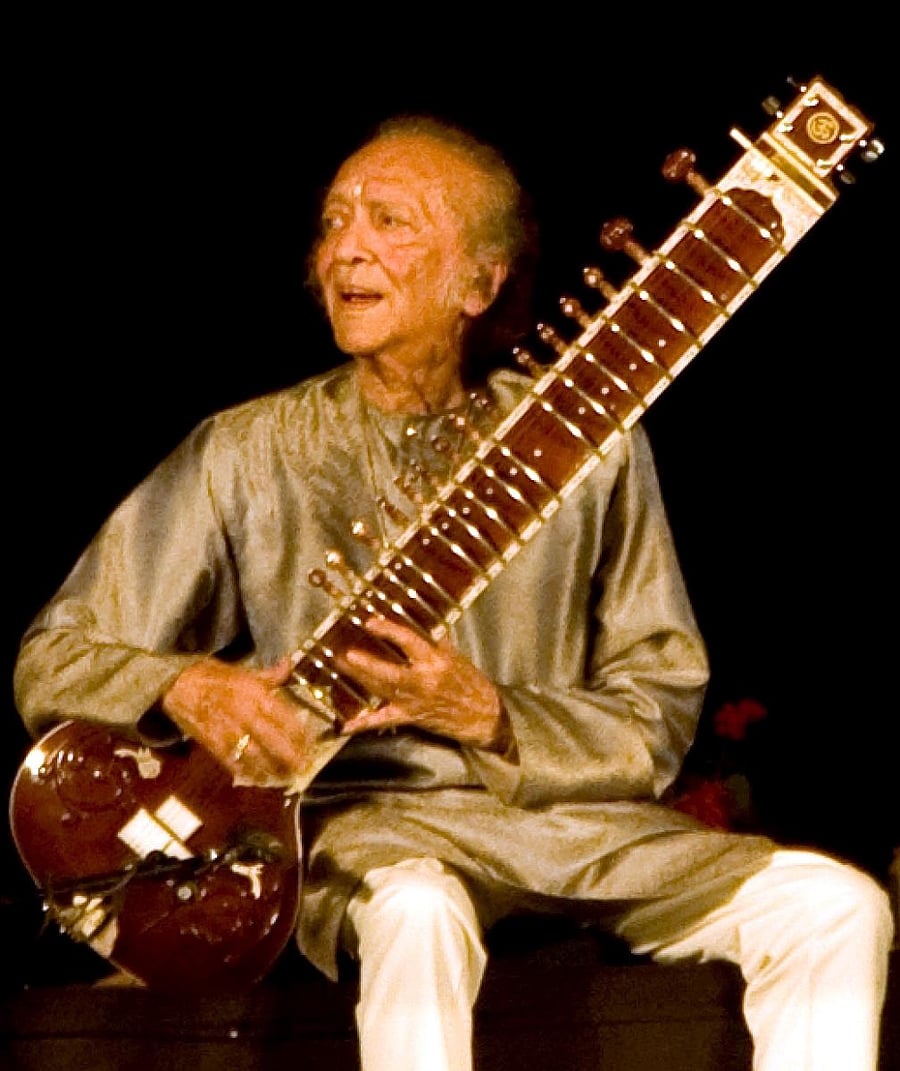
"We are keepers of heritage.” Zubin Mehta, one of Western classical music’s greatest living legends, recently stated in an interview. Indeed, the veteran’s words brought out the very essence of classical music and the undying mission of its passionate upholders.
The intense ‘sadhna’ that Indian classical musicians undertake to achieve excellence in a field that demands intense practice, helps them keep the millennia-old heritage alive and inspires new talents to take the tradition forward ably.
Farewell to the colossals
Ustad Akbar Ali Khan (1922-2009)
One of the greatest instrumentalists in Indian musical history, Khan saheb was the all-time monarch of Hindustani classical music. Having inherited his sarod skills from his legendary father and Guru, Ustad Alauddin Khan of Maihar, he elevated the sarod to its zenith with his deeply meditative and spiritual style. He even created many ragas such as Chandranandan, Lajwanti and Medhavi, to name just a few.
Pandit Ravi Shankar (1920-2010)
Undoubtedly among the most towering and influential figures of Indian music, Bharat Ratna Pandit Ravi Shankar not only took classical music to the masses but also popularised it world over. Another celebrated disciple of Ustad Alauddin Khan, he was aeons ahead of his time with his unique style and progressive thoughts. Along with his glorious career within India, his associations with the Beatles and western icons like Philip Glass and Yehudi Menuin, were path-breaking, to say the least.
Ustad Abdul Halim Jaffer Khan (1927-2017)
One of the most unconventional and fascinating personalities of Hindustani music, sitar legend Ustad Abdul Halim Jaffer Khan’s luminous charisma and colourful style continue to mesmerise connoisseurs. “The only gharana in music is the Vedas, and in life, its pyaar-mohabbat,” he would say. A contemporary of Pt Ravi Shankar, he was a staunch individualist and gave India the magnificent ‘Jafferkhani Baaj’. His film stints in evergreen Hindi hits like those in 'Goonj Uthi Shehnai' are remembered till date.
Pandit Dhruba Ghosh (1957-2017)
Revered as among the most important figures in Sarangi’s history, Pandit Dhruba Ghosh’s contribution to the instrument remains unparalleled. The son of legendary Tabla maestro Padmabhushan Pandit Nikhil Ghosh, he inherited the authentic taleem of Sarangi patriarch Ustad Bundu Khan from the maestro’s eminent disciple Ustad Sagiruddin Khan. The musician-philosopher-poet’s style was deeply spiritual. “He gave Sarangi its solo status and created its own distinct language, putting it on par with the Sitar and the Sarod,” explains Pandit Ghosh’s elder brother, renowned Tabla and Sitar maestro Pandit Nayan Ghosh. His hallmark album with Paul Winter Consort 'Miho: Journey to the Mountain' bagged a Grammy in 2010.
Pandit Buddhadev Dasgupta (1933-2018)
A big name in Sarod, Pandit Buddhadev Dasgupta remains one of the pillars of the instrument. His blue-blooded Senia Shahjahanpur style was the most authentic embodiment of Rababi-ang, ragadari and sonorousness.
The chief disciple of the legendary Pandit Radhika Mohan Maitra, he harmonised melody, rhythm and power in his repertoire, which bore nuances of the Rabab, the ancestor of the Sarod.
Tomorrow's wonders
Ishaan Ghosh
Son and disciple of living legend Pandit Nayan Ghosh, Ishaan stands as one among the most powerful tabla players today. Having inherited the authentic repertoire of 5 diverse gharanas -- Delhi, Ajrada, Farukhabad, Lucknow and Punjab -- his refreshing style embodies tayyaari, laykaari, balance, tonality and power along with nuances of the great old masters. An exceptional soloist and sensitive accompanist, at 19, Ishaan is rapidly making a mark in India and on the international scene.
Takahiro Arai
Though originally Japanese, Arai is Indian at heart. The Mumbai-based Santoor player, initially a drummer, is not only fluent in Hindi but has also imbibed the true essence of the Santoor from his guru, the celebrated Pandit Shivkumar Sharma. Meditative, soothing and cerebral, his performances are a pure treat .
Abhishek Borkar
Emerging as one of Sarod’s fine young representatives, Abhishek pours his passion into his music. A follower of Ustad Ali Akbar Khan’s style, which he learnt from his father Pandit Shekhar Borkar, he explores each note with sensitivity, softness and refinement. Introspective and explorative, he unfolds each raga with love and gentleness.
Aditya Khandwe
A gentleman singer, his gayaki is rich and colourful with exquisite explorations of each raga. With a naturally gifted melodious voice, the young vocalist resurrects memories of great legends like Jaipur Gharana doyen Pandit Mallikarjun Mansur and his son Pandit Rajashekhar. He has inherited nuances of Jaipur and Gwalior gharanas from eminent gurus.
Deepak Paramashivan
The Bengaluru boy’s love for music has taken him to great heights. Along with intensive training in Carnatic music, in both vocal and the Veena in the Mysuru Bidaram Krishnappa style from his father R Paramashivan, he has trained in Hindustani vocal and Sarangi under Ustad Faiyaz Ahmed Khan of Dharwad as well as under stalwarts such as Pandit Ram Narayan and Pandit Dhruba Ghosh. Deepak also studies western piano and choral compositions and takes voice lessons at the University of Alberta, Canada.